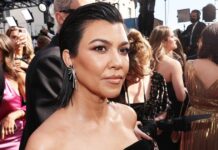Now Playing
Fear the Walking Dead: How Would John and Luciana Handle Negan?

Next Up
The Best ’90s TV Catchphrases
Whether you liked it or not — and a very vocal contingent of the fandom really did not — you have to respect Fear the Walking Dead‘s fourth season for taking a big, crazy swing. The Walking Dead spin-off transformed into a different show in Season 4. Not figuratively, the way that the mothership show will make some stylistic changes every half-season, but literally. It now has just one character who’s been with the show since the pilot, Alycia Debnam-Carey‘s Alicia Clark, and is almost entirely staffed by new characters, led by Lennie James‘ Morgan Jones, who became the lead after Kim Dickens‘ Madison Clark was controversially killed off in the midseason finale. It has a unique pastel gray color palette that makes it look like a Sunday comic strip. And in a twist that wasn’t fully established until Sunday’s season finale, it finally found a distinctively different thematic engine from The Walking Dead: hope.
Before the start of Season 4, Andrew Chambliss and Ian Goldberg took over showrunning duties from Dave Erickson — who co-created the series with Robert Kirkman and whose vision was even more brooding than The Walking Dead‘s — and from their earliest interviews the duo started pushing the idea that Fear the Walking Dead Season 4 would be about hope. Isolated people would find each other and build a community. The world as we knew it may be over, but that doesn’t mean that the next version of the world has to be defined by warring tribal factions. This idea was first explored by Madison in the first half of the season as she built a colony inside a baseball diamond and welcomed anyone who wanted to join. Of course that didn’t mean it would work in this bloodthirsty world.
Her openness ended up leading to her death, but the show believed she was right in principle, and in the second half it refocused around Morgan as he rejoined the human race after leaving it, metaphorically speaking, on The Walking Dead, and somewhat literally in the season premiere. He began the season by running away, and by the end he was putting down roots in an abandoned denim factory and leading his friends out on a search-and-rescue mission. He’s going out of his way to find people who need help. That’s an optimistic vision of the future. It will surely be tested in Season 5, but Fear has come down firmly on the idea that killing is bad and should be avoided as much as possible, and it seems likely to keep that as a baseline. This is different from The Walking Dead‘s point of view; That show ultimately always decides that violence is the answer.
 Lennie James, Fear the Walking Dead
Lennie James, Fear the Walking Dead
This is not to say that Fear is necessarily better, or that all of its changes worked. The second half’s antagonist, the Filthy Woman (Tonya Pinkins), never really made any sense (she thinks that helping people makes them weak because no one helped her in her time of need but she helps people become strong by turning them into zombies? Idk.), and the first half of the season turned Madison into a character so different than she was in the first three seasons that she didn’t make sense, either. That’s probably why she was killed off. She didn’t fit in the show anymore. Erickson’s conception of her was like Breaking Bad‘s Walter White, a normal person who gradually turns into a ruthless killer, and Chambliss and Goldberg went in a different direction. Dickens was unhappy. Fans were too, because Reddit is of the opinion that Season 3 was a near-perfect season of television. I personally don’t hold Season 3 or Kim Dickens’ performance in such high esteem; I found them both kind of boring and they never lived up to their potential. Dave Erickson seemed to want to make a different, more emotionally complex show than AMC wanted, and it always seemed to be in conflict with itself because of that. Season 4 at least knew what it was: a big, broad Western with zombies and a sense of fun that bordered on weird.
Keep track of your favorite shows: Listings | iOS App | Android App
Seriously, some of the stuff in the second half of Season 4 was straight-up odd. The scene when Morgan’s toilet time was interrupted by a wheelchair-bound man asking him why he was using the handicapped stall and Morgan responding it was “like a little apartment” had me laughing in disbelief when I watched it. Now whenever I use the big stall I think of it as a little apartment. The show did something that will stay with me. Other things have stuck with me, too, but because they were good, not just because they were weird, like John Dorie’s (Garret Dillahunt) introductory soliloquy in the premiere (“platypus!”), Nick Clark’s (Frank Dillane) dying vision of himself laying in a field of blue bonnets and the standalone episode where John and June (Jenna Elfman) fell in love. These moments felt fresh, more grounded in real emotion for how specific they were.
If you didn’t like Season 4, I get it. It was weird, made doubly so by the fact that it was a new show being passed off as an old show. If you loved Season 3, you felt cheated. And apparently there were more Season 3 fans than AMC was anticipating, because ratings are down from a year ago and half what they were for the Walking Dead-boosted Season 4 premiere. Season 5 should be the end of Fear as the franchise figures out its next phase. And when it does end, it will have been an interesting ride.
The Walking Dead Season 9 premieres Sunday, Oct. 7 at 9/8c.
Source : TVGuide









